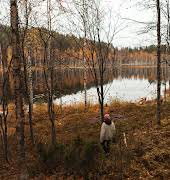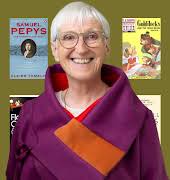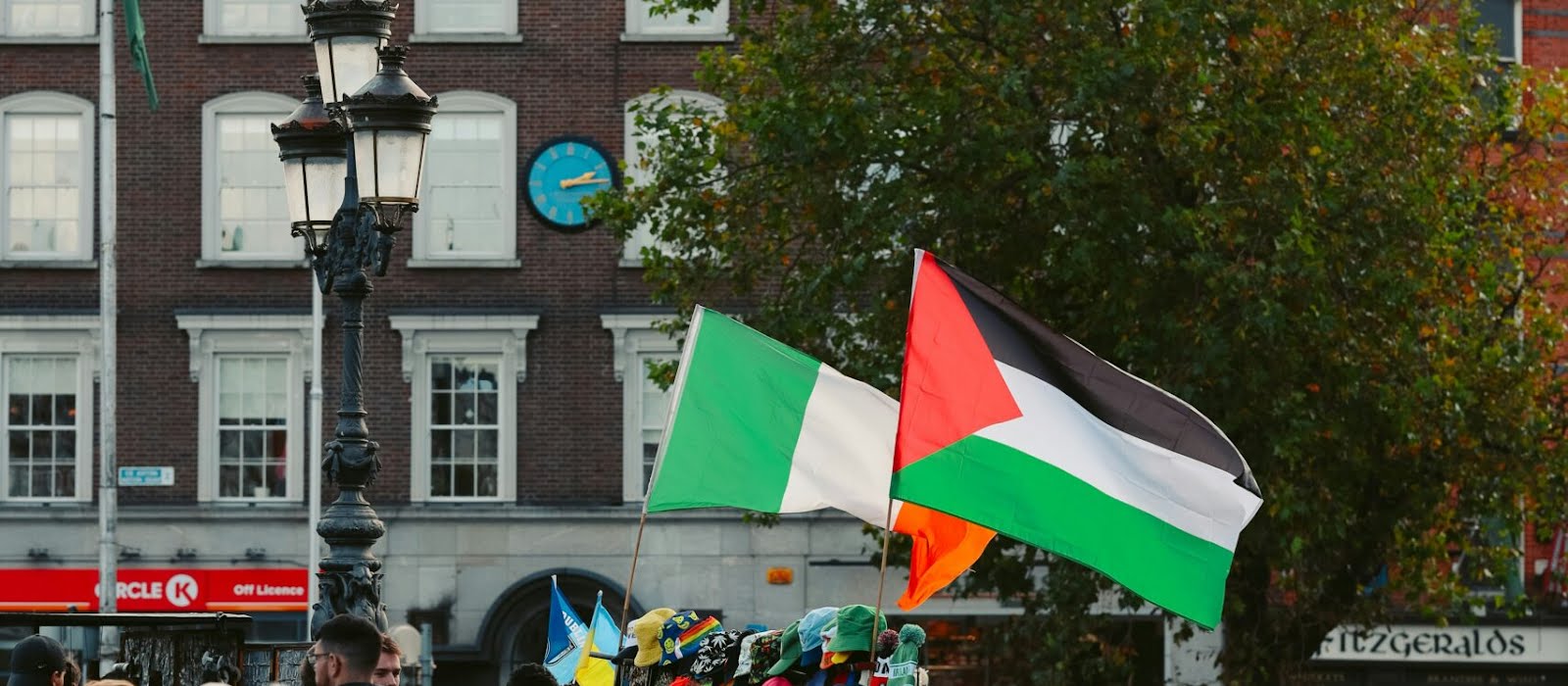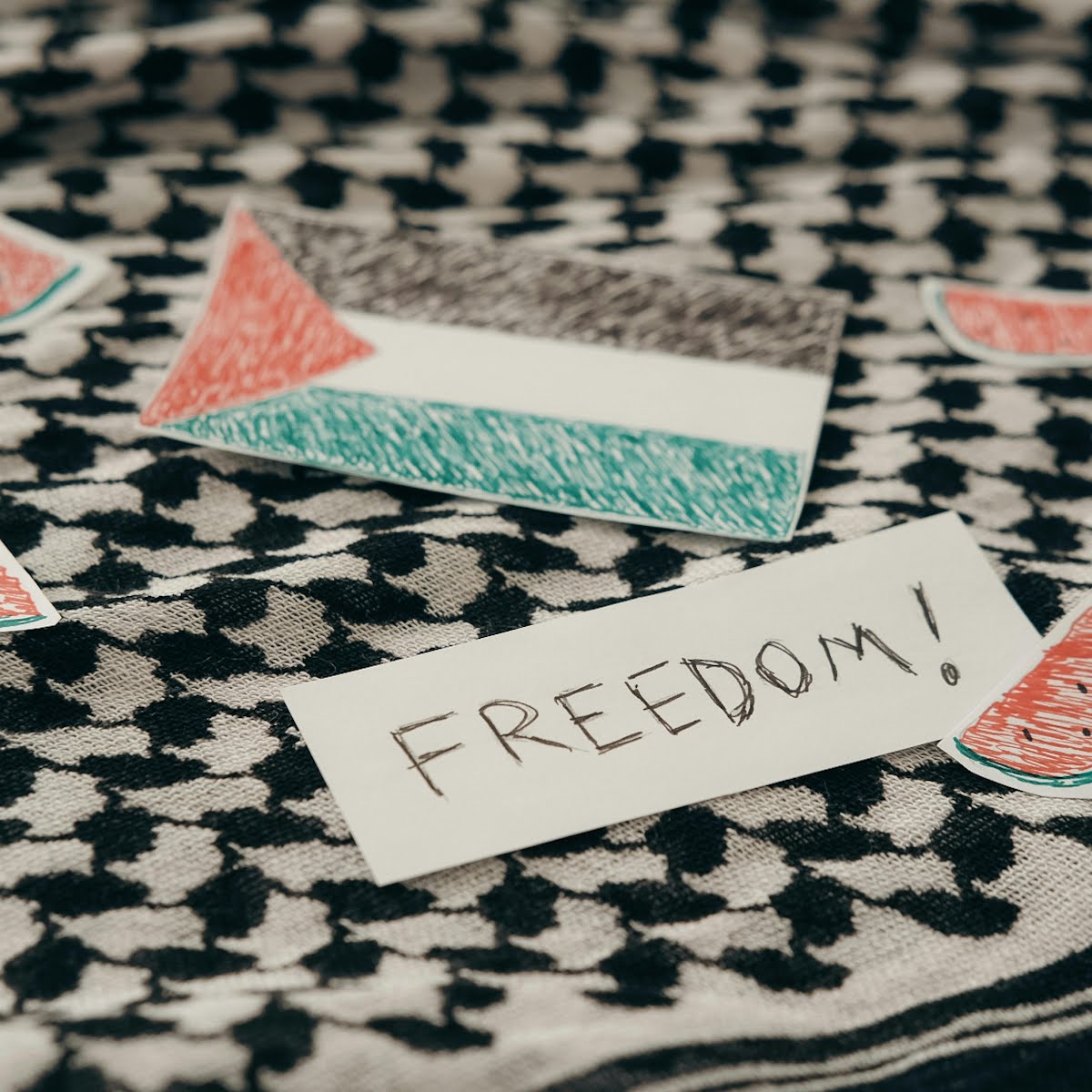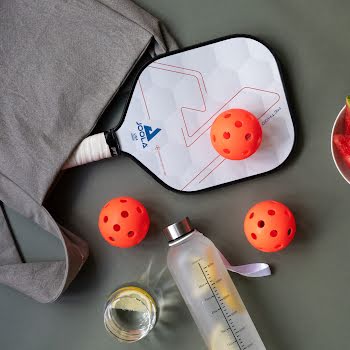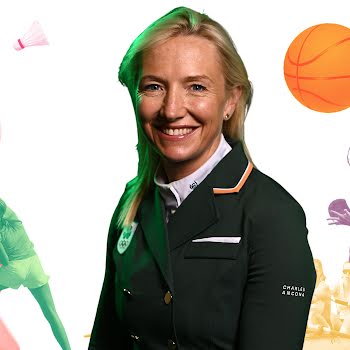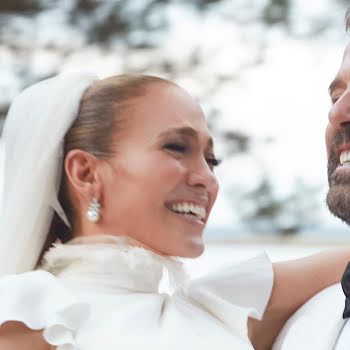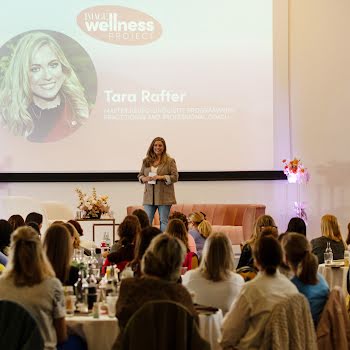With the news a constant source of worry and anxiety, many parents are grappling with how to discuss what’s happening in Palestine with their children. Mum of four Orlaith Donlon shares what’s worked for her and her family.
The world feels like a very scary, unsafe place right now. We are all watching, as unspeakable horrors unfold before our eyes in Palestine. Like many of you, I want to do everything in my power to help. Things like boycotting, protesting, calling our TDs and donating to humanitarian aid on the ground. But, how do I talk to my kids about what is happening in Palestine?
I want to preface this by saying, I am not a child psychologist. I am a mum of four, who’s been through a few traumas over the past few years. From these experiences, I have learned how to speak to my kids about uncomfortable, sad topics. We each know our own children best, what information they can absorb, and how to tailor it to the individual child.
From my own experience, children are very receptive to the emotions and anxieties of those around them. They can sense it, even when we try to protect them from it. They overhear conversations, they catch snippets on the news, even some of their friends will be talking about it. We have found that being open and honest, in an age-appropriate way, is the best policy for us.
My own children become more anxious when they feel that things are being kept from them. As parents, we instinctively want to protect our children from hurt, pain, sadness. However, these are normal emotions. I believe allowing children to feel these uncomfortable feelings, and supporting them as they navigate it, will hopefully make them more resilient and compassionate. We do our children a disservice by not preparing them for difficult feelings and situations and equipping them with the skills and strategies to navigate through them.
When it comes to the current situation in Gaza, we started by outlining the history of Palestine and drawing parallels to our own history. We emphasised why it is the responsibility of those of us who are privileged, to defend and support those who aren’t. We talked to them about the current invasion of Palestine. We have told them that people are being killed, although we don’t dwell on the specifics of this. Our older children have asked us specifically, whether are children dying, and we have been honest with them. This did upset them, but we listened to them, acknowledged their feelings, and agreed with them about how they were feeling.
When we have given them tangible, proactive ways to help, it has energised them and given them a positive purpose. They join us on marches, they make colourful posters, they boycott brands that support Israel. They use their pocket money to buy Palestinian flags and badges. They do this with pride. People at protests have stopped them and told them, how proud they should be of themselves, and they are. They meet their friends at protests, and this gives them a sense of belonging to a movement; something important, bigger than them.
I don’t believe, that asking children to boycott Mcdonald’s or to protest on the streets will ruin their childhood. I think it highlights how individual actions can impact change – an important life lesson.
Our hope is that by including them in such important activism, we will raise compassionate, caring adults – adults, who will be able to navigate the world with humanity.
What the experts say
We spoke with Dr Mary O’Kane, a lecturer in psychology and education, and author of Anxious Children in an Anxious World, about how she advises parents to broach the topic. Here’s what she had to say…
We do not want to introduce the idea of war to our younger children, so I would start by recommending that parents limit news exposure in the home. However, we should also be aware that it is very possible that children will hear about the current situation, whether this is from a friend on the playground, a news or radio report, or by listening to family conversations. Although as parents we often focus on a desire to protect children from information that might worry them, it is best to have a conversation with them about these events rather than leaving them to try to process what they are hearing alone.
As adults, we are struggling to make sense of the violence taking place in Gaza. The violence we have witnessed is shocking, we cannot imagine what families over there are going through. It can be difficult to manage our own upset, worry and fear, while also trying to explain senseless violence to our children. But it is important to have this conversation with your children when you are calm yourself. We are our children’s safe space. We are their port in the storm. Our calm presence will help them to process this event, and their connection to you will help them to register safety.
Start by gently asking them what they have heard about the conflict. If they are oblivious to these events, that is fine, no need to burden them. However, they may well have heard about this and want to talk about it. Try to let them lead the conversation.
For younger children, answer questions as honestly as you can, without giving them too many details. Don’t avoid questions but answer them in an age-appropriate way. Reassure them that we are not in any danger here, but we are worried about the people in Gaza. It is also ok to say that war can be confusing and complicated, and we really don’t fully understand why something has happened.
It is natural for younger children to feel concern for their own family and friends. For a young child, the knowledge that this is far away will help to reassure them. Indeed, the continuation of normal family life will also help them to register safety – normal family routine can be a source of comfort in stressful times. Those routines and rituals can help children feel that their own world is still safe and predictable.
For older children, again the most important thing is to listen to their fears or worries and use age-appropriate language to respond. Allow them time and space to tell you how they feel. If they are feeling anxious and afraid, let them know that this is completely normal.
Be as honest as you can, but also try to remind them of the good in the world. Remind them of all the helpers who are trying to support the families in Gaza: the aid agencies, the Red Cross, the doctors and nurses from Doctors Without Borders/Médecins Sans Frontières, and all the people across the world trying to raise funds for relief efforts. It is important that they know that so many people across the world are trying to help, and trying to make this situation better.
Remind them that when they have any other questions to come back to you to talk again. It is also ok not to have all the answers, and to tell them that you will try to find the answers to their questions and come back to them.
Teenagers will have a much better understanding of the ramifications of these events. They will have studied history in school and have a greater awareness of the implications of war. Remind them that everything they see on social media is not necessarily accurate. You might even want to speak to them about some reputable sources of information if they are interested in learning further and perhaps look at some of these together. However, as with younger children, be mindful of limiting the time they spend watching, or listening to, news reports.
Try not to allow your own anger about the situation to take over your discussions with your children. It is much better to try to control your own emotions. Instead, allow them to openly tell you how they feel. There is no right or wrong way to feel, they should be able to express their true emotions. For example, with younger children, their primary emotion might be fear that this will happen in Ireland. Children take their emotional cues from us, so although you can acknowledge how sad you feel, don’t get very angry as this can make the situation even more frightening for younger children.
For those who are worried, encourage them to talk about their emotions. Give them some ideas of tools to use if they are feeling overwhelmed – for example, breathing exercises; listening to music; drawing; getting outdoors. Particularly before bedtime, spend some extra time reading or playing with them just to reassure them, and send them to sleep with a sense of security. Our children need us to listen at these times, to stay close and reassure them.
It can also help at times of difficulty to know that they can do something positive to help. This could be donating to a charity helping children in Gaza or lighting a candle in your home to show support. Teens might like to speak to their peers about doing something together to show solidarity or perhaps think of a way to fundraise. Encourage teens to speak to their friends about ways in which they might help. Doing something positive can remind your child that they can make a difference to children directly impacted. It can also help them feel less anxious or helpless.
Importantly, they need to know that when you feel sad and worried, to tell someone. The people in your life who believe in you like your parents, friends, and teachers can help you when you feel down. Sometimes, just telling them about the problem can help. Also, they might be able to help you work out practical ways in which you can help.
Finally, the most important tool we have to support our children in difficult times is our relationship with them. Our time and attention, our listening ear, our calm presence, are all key in helping them make sense of difficult events. Our connection to our child can help them to register safety in the face of difficult situations.
Books to support children with a theme of war
Preschool/early primary:
- Green Lizards vs. Red Rectangles by Steve Antony
- The Little War Cat by Hiba Noor Khan
- What is a Refugee? By Elise Gravel
- The Suitcase by Chris Naylor Ballesteros
- Wishes by Muon Thi Van
Primary school age:
- The Day War Came by Nicola Davies
- The Journey by Francesca Sanna
- The Wall: Growing up Behind the Iron Curtain by Peter Cis
- I am David by Anne Holm
For teens:
- War Children by Gerard Whelan
- The Book Thief by Markus Zusak
- As Long as the Lemon Trees Grow by Zoulifa Katouh
- Sunrise Over Fallujah by Walter Dean Myers
In summary, the most important thing is that we have these conversations (at an age-appropriate level) to help our children try to process and cope with a very frightening event. You know your child best, so allow them to talk, listen to their feelings, and be prompted by their questions. Reassure them that these events are rare, and remember you are their port in a storm. Your calm presence will help them to process this event, and their connection to you will help them to register safety.
Children need to be reassured that they are safe, that you will keep them safe, and that you will do what you can to help people work together to protect children around the world from violence.
Photo by Ibrahim guetar on Unsplash





